The unpopular Zardari, who is close to the United States, has been dogged by accusations of graft from the 1990s when Bhutto was prime minister.
Pakistani president Asif Ali Zardari and his ruling party have thrown down the gauntlet in the face of calls for him to resign, condemning what they called a witch-hunt and vowing to foil conspiracies again them.
Opposition politicians have been calling for president Asif Ali Zardari to step down since the Supreme Court on Wednesday struck down an amnesty that protected him, several government ministers and thousands of others from corruption charges.
The political tension comes as the United States has intensified pressure on its nuclear-armed ally to clear out Afghan Taliban enclaves along the Afghan border while Pakistan is battling its own homegrown militants and their suicide bombers.
Zardari, the widower of assassinated former prime minister Benazir Bhutto, met top leaders of his Pakistan People's Party (PPP) on Saturday to draw up political strategy.
"The PPP will use democracy and constitutionalism as its weapons to fight its adversaries and foil all conspiracies against it", Zardari was later quoted as saying in a statement.
The unpopular Zardari, who is close to the United States, has been dogged by accusations of graft from the 1990s when Bhutto was prime minister.
He says the charges were politically motivated and was never convicted but spent 11 years in prison.
He was covered by the 2007 amnesty which the Supreme Court threw out, but cannot be prosecuted because he is protected by presidential immunity. He has dismissed calls from opposition politicians and hostile sections of the media to step down.
Several of his aides and two of his top ministers -- interior minister Rehman Malik and defence minister Chaudhry Ahmed Mukhtar -- were also on a list of people protected by the amnesty, and they too are facing calls to quit.
But Zardari said his party would not be "blackmailed" into asking its ministers to resign on the basis of accusations, the president's spokesman said.
"None of the accusations had been proved during more than a decade of witch-hunting and there is no reason why any one should resign until proved guilty of wrong-doing," the spokesman, Farhatullah Babar, cited Zardari as saying.
Uncharted waters
The amnesty was introduced by former president Pervez Musharraf as part of a power-sharing deal brokered with Bhutto, with US and British encouragement.
Bhutto returned to Pakistan from self-imposed exile soon after the amnesty was introduced in October 2007, but she was assassinated weeks later while campaigning for a general election she had hoped to win.
Instead, Zardari led her party to victory in the February 2008 polls and became president after Musharraf stepped down later that year, ending nine years of military rule.
Zardari has had differences with the army, in particular over a US aid bill that critics said violated Pakistani sovereignty, but analysts have ruled out any chance of a military coup now.
Nevertheless, the military, which runs Pakistan's war against the Taliban and largely sets policy on Afghanistan and old rival India, will be watching closely.
The danger for Zardari, legal experts say, will come from the courts. He is expected to face legal challenges to the legitimacy of his 2008 election as president now that old cases against him have been revived.
"The country's politics is once again entering uncharted waters, with a possible confrontation between the judiciary and the political leadership of the executive looming," the Dawn newspaper said in an editorial on Sunday.
Analysts say Zardari could deflect some political pressure by agreeing to the demands of opposition leader Nawaz Sharif to transfer sweeping powers the autocratic Musharraf assumed for the presidency back to the office of the prime minister.
The PPP said in its statement the government was moving fast to finalise constitutional reforms to do that.
The United States will be looking on with dismay as political turmoil threatens to consume the attention of Pakistan's leaders to the cost of its fight against militants.
Ties have already been strained by Pakistan's reluctance to crack down harder on Afghan Taliban factions. Pakistan sees the Afghan factions as tools to counter the expanding influence of India in Afghanistan, analysts say.
![submenu-img]() ‘Body dismembered, pureed in blender’: Former model gets brutally murdered by her husband after..
‘Body dismembered, pureed in blender’: Former model gets brutally murdered by her husband after..![submenu-img]() Venom The Last Dance trailer: Tom Hardy channels Tom Cruise, battles boss symbiote Knull, fans say 'it will be a blast'
Venom The Last Dance trailer: Tom Hardy channels Tom Cruise, battles boss symbiote Knull, fans say 'it will be a blast'![submenu-img]() Meet man who once lost Rs 1.27 lakh crore in a day, today owns giant e-commerce business worth crores, he is…
Meet man who once lost Rs 1.27 lakh crore in a day, today owns giant e-commerce business worth crores, he is…![submenu-img]() Katy Perry, Orlando Bloom share steamy kiss at MTV Video Music Awards 2024; video goes viral
Katy Perry, Orlando Bloom share steamy kiss at MTV Video Music Awards 2024; video goes viral![submenu-img]() 'Ready to resign...': CM Mamata Banerjee as junior doctors continue protest over Kolkata rape-murder case
'Ready to resign...': CM Mamata Banerjee as junior doctors continue protest over Kolkata rape-murder case![submenu-img]() Maharashtra Factory Blast: महाराष्ट्र के रायगढ़ की केमिकल फैक्ट्री में ब्लास्ट, यूपी के 3 मजदूरों की मौत, 3 घायल
Maharashtra Factory Blast: महाराष्ट्र के रायगढ़ की केमिकल फैक्ट्री में ब्लास्ट, यूपी के 3 मजदूरों की मौत, 3 घायल![submenu-img]() UP BJP में बड़ा फेरबदल, सीएम Yogi Adityanath ने एक साथ बदले 75 जिलों के प्रभारी मंत्री, केशव प्रसाद मौर्य को मिली ये जिम्मेदारी
UP BJP में बड़ा फेरबदल, सीएम Yogi Adityanath ने एक साथ बदले 75 जिलों के प्रभारी मंत्री, केशव प्रसाद मौर्य को मिली ये जिम्मेदारी![submenu-img]() बातचीत के लिए नहीं पहुंचे हड़ताली डॉक्टर, भावुक CM ममता बोलीं- मैं इस्तीफा देने को तैयार
बातचीत के लिए नहीं पहुंचे हड़ताली डॉक्टर, भावुक CM ममता बोलीं- मैं इस्तीफा देने को तैयार![submenu-img]() 'Ooh La La...' गाने पर डेनमार्क में भारतीय महिला ने किया बवाल डांस, मूव्स देख लोग बोले- 'मार डाला...'
'Ooh La La...' गाने पर डेनमार्क में भारतीय महिला ने किया बवाल डांस, मूव्स देख लोग बोले- 'मार डाला...'![submenu-img]() मथुरा से आगरा तक बारिश का कहर, धंसी सड़कें और गिरे पुल, 7 लोगों की मौत, स्कूल इतने दिन के लिए बंद
मथुरा से आगरा तक बारिश का कहर, धंसी सड़कें और गिरे पुल, 7 लोगों की मौत, स्कूल इतने दिन के लिए बंद![submenu-img]() ‘30 LPA, 3BHK, no in-laws’: Woman earning Rs 1.32 lakh salary lists demands for future husband, netizens say...
‘30 LPA, 3BHK, no in-laws’: Woman earning Rs 1.32 lakh salary lists demands for future husband, netizens say...![submenu-img]() In a big EV push, Centre launches Rs 10900 crore PM E-Drive scheme to replace…
In a big EV push, Centre launches Rs 10900 crore PM E-Drive scheme to replace…![submenu-img]() World’s longest car has helipad, swimming pool, mini-golf course, can seat over…; it cost…
World’s longest car has helipad, swimming pool, mini-golf course, can seat over…; it cost…![submenu-img]() This car sets new Guinness world record for becoming longest driving EV on a single charge; it cost Rs…
This car sets new Guinness world record for becoming longest driving EV on a single charge; it cost Rs…![submenu-img]() MG Windsor EV launched in India: Check price, features, design of India’s first ‘CUV’
MG Windsor EV launched in India: Check price, features, design of India’s first ‘CUV’![submenu-img]() Meet woman, who belongs to tribal family, cracked UPSC exam in fourth attempt, became IAS officer with AIR...
Meet woman, who belongs to tribal family, cracked UPSC exam in fourth attempt, became IAS officer with AIR...![submenu-img]() Meet woman who cracked UPSC in 1st attempt without coaching, became IPS at 22, but resigned after 4 years due to...
Meet woman who cracked UPSC in 1st attempt without coaching, became IPS at 22, but resigned after 4 years due to...![submenu-img]() Meet genius, an Indian who worked with IIT, had NASA connection, went missing and was found years later in...
Meet genius, an Indian who worked with IIT, had NASA connection, went missing and was found years later in...![submenu-img]() Meet man, who lost eyesight at 8, got record-breaking job offer after graduation, not from IIT, NIT, salary is Rs...
Meet man, who lost eyesight at 8, got record-breaking job offer after graduation, not from IIT, NIT, salary is Rs...![submenu-img]() Meet woman, IAS Tina Dabi's friend who cracked UPSC exam in first attempt without coaching, secured AIR...
Meet woman, IAS Tina Dabi's friend who cracked UPSC exam in first attempt without coaching, secured AIR...![submenu-img]() Malaika Arora Father Death: Anil Mehta's Final Words To His Daughter Malaika Arora
Malaika Arora Father Death: Anil Mehta's Final Words To His Daughter Malaika Arora![submenu-img]() Chandigarh Blast: Grenade Explosion In Sector 10; Auto Driver Arrested, Investigation Ongoing
Chandigarh Blast: Grenade Explosion In Sector 10; Auto Driver Arrested, Investigation Ongoing![submenu-img]() BSF Jawan Injured As Pakistan Violates Ceasefire Near LoC Days Before Jammu Kashmir Elections 2024
BSF Jawan Injured As Pakistan Violates Ceasefire Near LoC Days Before Jammu Kashmir Elections 2024![submenu-img]() Rahul Gandhi US Visit: Rahul Gandhi Criticizes BJP And RSS At National Press Club, US | INDIA
Rahul Gandhi US Visit: Rahul Gandhi Criticizes BJP And RSS At National Press Club, US | INDIA![submenu-img]() Kolkata Doctor Case: ED Reveals Properties Of RG Kar Ex-Principal Sandip Ghosh Found In Raids
Kolkata Doctor Case: ED Reveals Properties Of RG Kar Ex-Principal Sandip Ghosh Found In Raids![submenu-img]() Meet man who once lost Rs 1.27 lakh crore in a day, today owns giant e-commerce business worth crores, he is…
Meet man who once lost Rs 1.27 lakh crore in a day, today owns giant e-commerce business worth crores, he is…![submenu-img]() Meet woman, popular TV actress who left acting to build Rs 820 crore company from scratch, she owns one of famous…
Meet woman, popular TV actress who left acting to build Rs 820 crore company from scratch, she owns one of famous…![submenu-img]() Eastman Strengthens Leadership team, Charts Course for a New Future
Eastman Strengthens Leadership team, Charts Course for a New Future![submenu-img]() Emotional Intelligence for Entrepreneurs: A Key to Business Success
Emotional Intelligence for Entrepreneurs: A Key to Business Success![submenu-img]() Meet Pakistan’s richest man with Rs 111674 crore net worth, owns Jacksonville Jaguars and luxury properties
Meet Pakistan’s richest man with Rs 111674 crore net worth, owns Jacksonville Jaguars and luxury properties![submenu-img]() AI Insights: Top 7 high-paying jobs in India by 2050
AI Insights: Top 7 high-paying jobs in India by 2050![submenu-img]() Streaming This Week: Sector 36, Berlin, Khalbali Records, Mr Bachchan, latest OTT releases to binge-watch
Streaming This Week: Sector 36, Berlin, Khalbali Records, Mr Bachchan, latest OTT releases to binge-watch![submenu-img]() Meet Rishi Kapoor's heroine who became star with hit debut, quit films after continuous flops; left India to live in...
Meet Rishi Kapoor's heroine who became star with hit debut, quit films after continuous flops; left India to live in...![submenu-img]() India's most successful star kid gave blockbusters at 25, bigger than superstar dad; not Ranbir, Hrithik, Salman, Alia
India's most successful star kid gave blockbusters at 25, bigger than superstar dad; not Ranbir, Hrithik, Salman, Alia![submenu-img]() Meet India's most unsuccessful actor, has 180 flops, no hit since 1998, still a superstar; not Govinda, Akshay, Salman
Meet India's most unsuccessful actor, has 180 flops, no hit since 1998, still a superstar; not Govinda, Akshay, Salman ![submenu-img]() 'Ready to resign...': CM Mamata Banerjee as junior doctors continue protest over Kolkata rape-murder case
'Ready to resign...': CM Mamata Banerjee as junior doctors continue protest over Kolkata rape-murder case![submenu-img]() Gaurs Group Conducts Live Lottery for 3X Over-subscribed project- Gaur NYC Residences
Gaurs Group Conducts Live Lottery for 3X Over-subscribed project- Gaur NYC Residences![submenu-img]() LAWA Global Innovations: Where Adventure Meets Passion Through a Dynamic Husband-and-Wife Duo
LAWA Global Innovations: Where Adventure Meets Passion Through a Dynamic Husband-and-Wife Duo![submenu-img]() Who is Premanand Maharaj, AI victim whose voice is being used for...
Who is Premanand Maharaj, AI victim whose voice is being used for...![submenu-img]() Kerala: Professor collapses and dies during Onam celebrations at college after…
Kerala: Professor collapses and dies during Onam celebrations at college after…




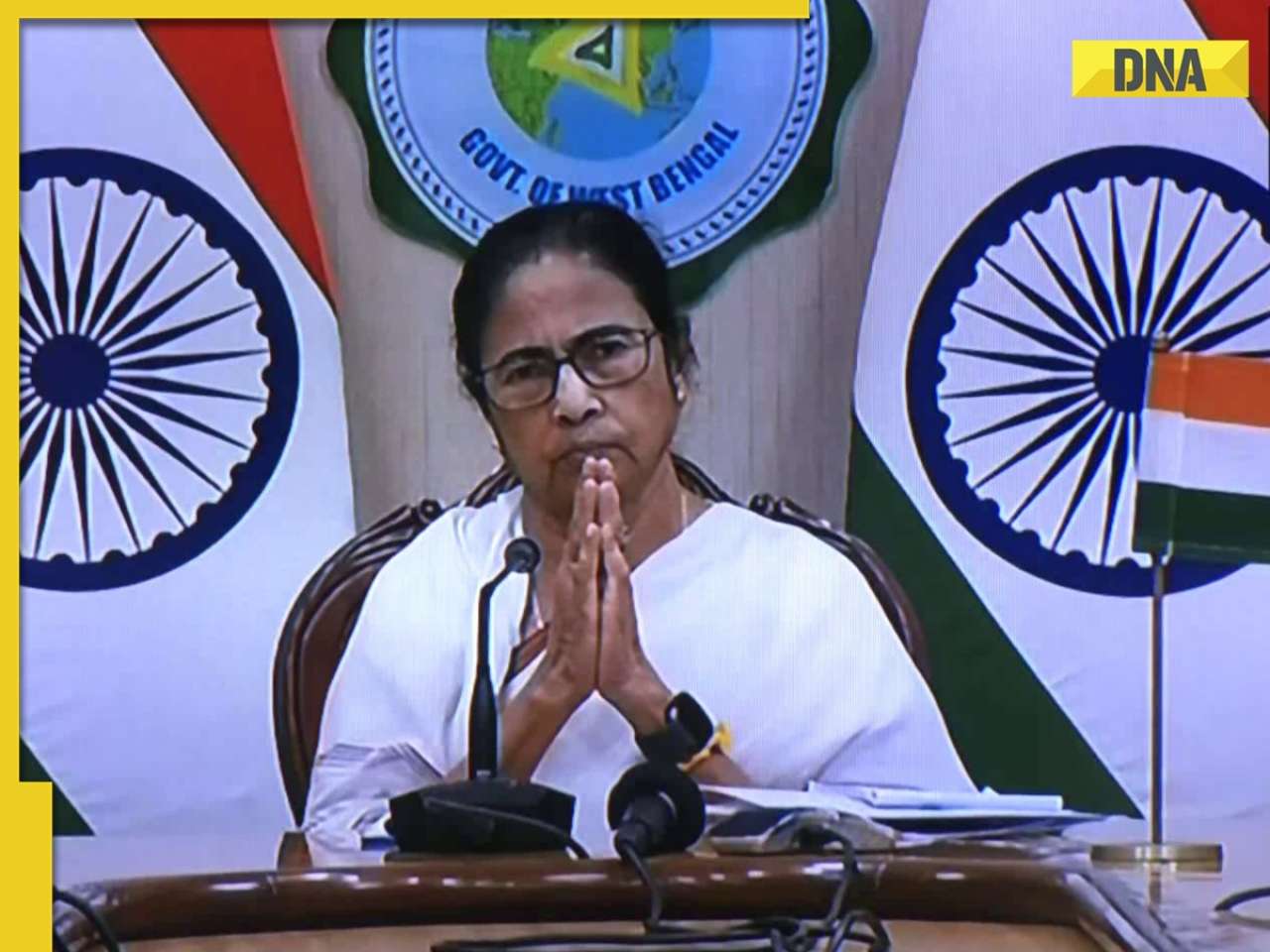





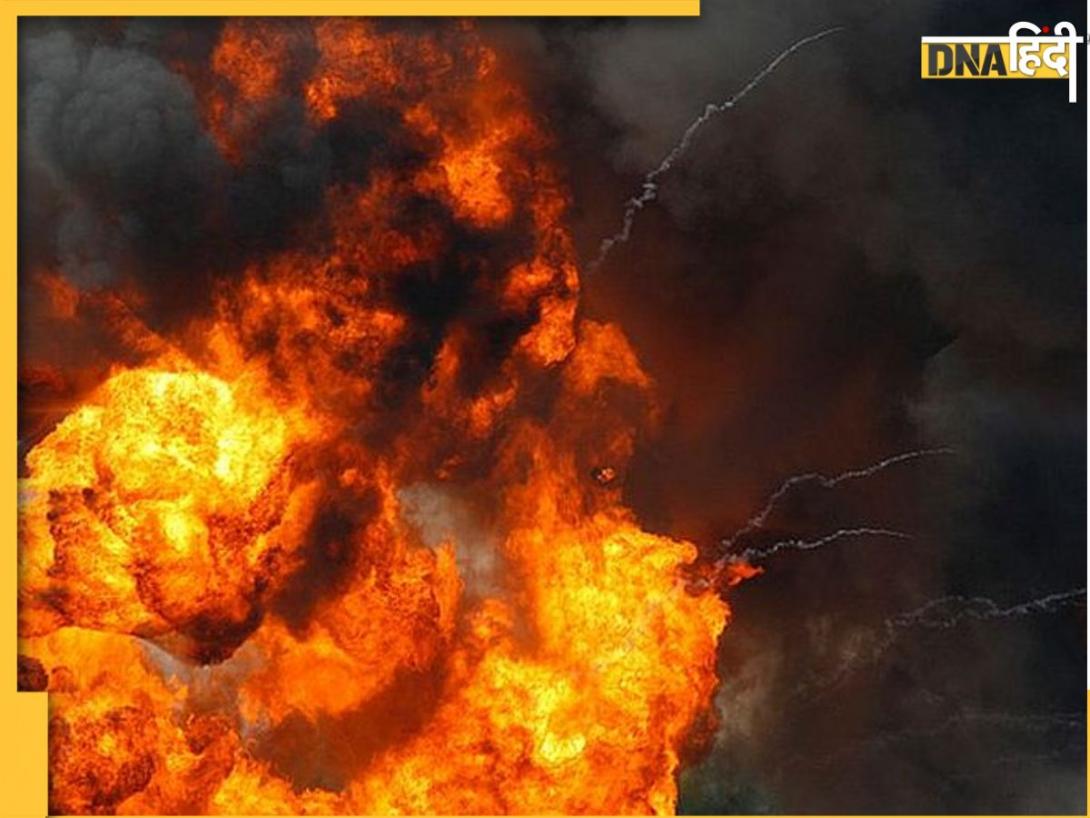
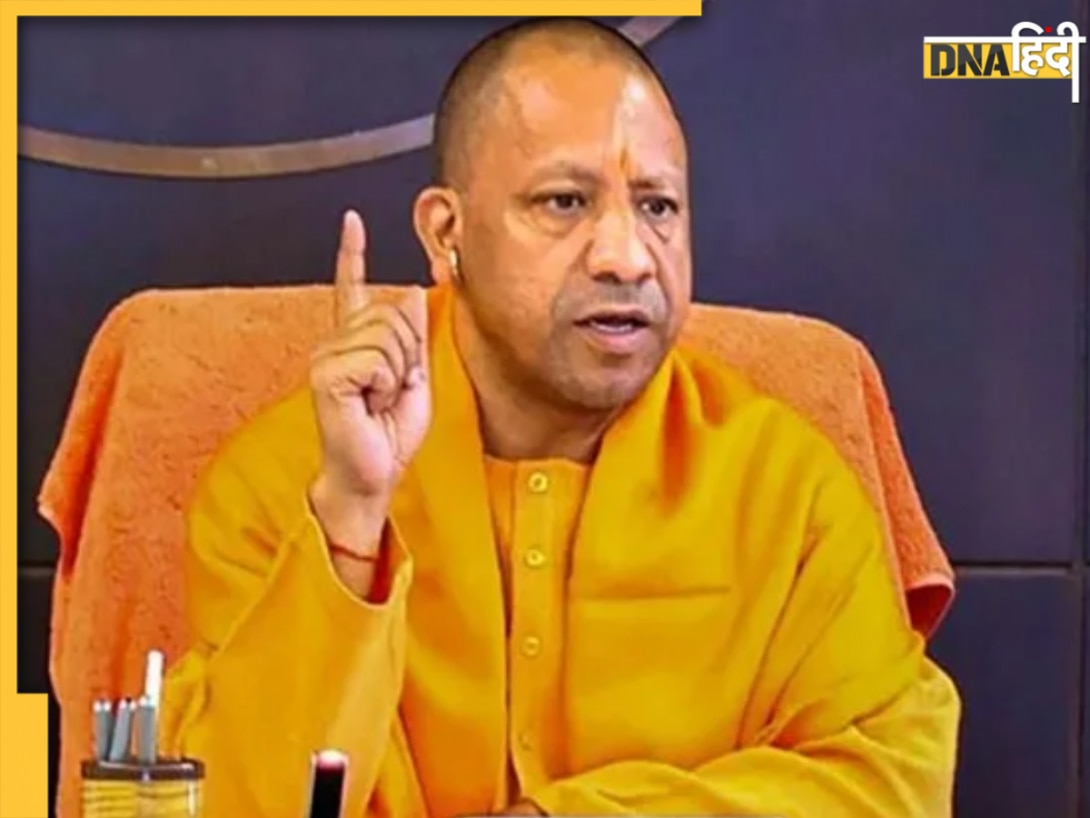
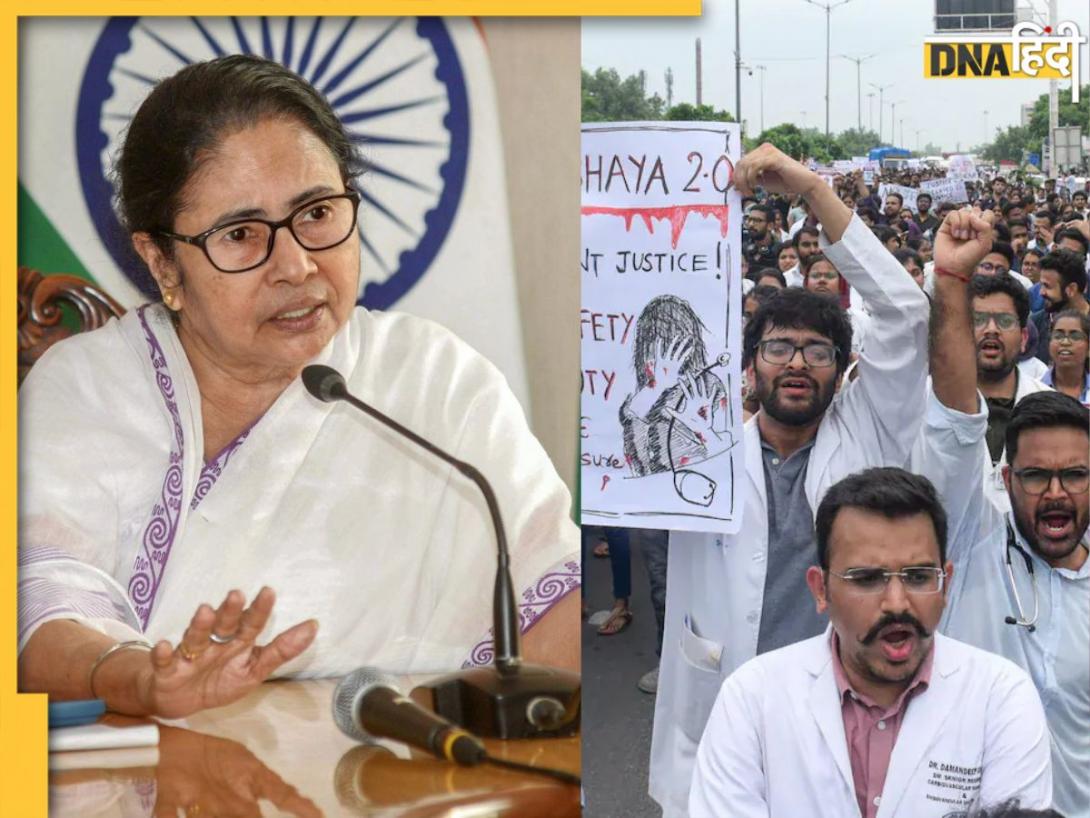







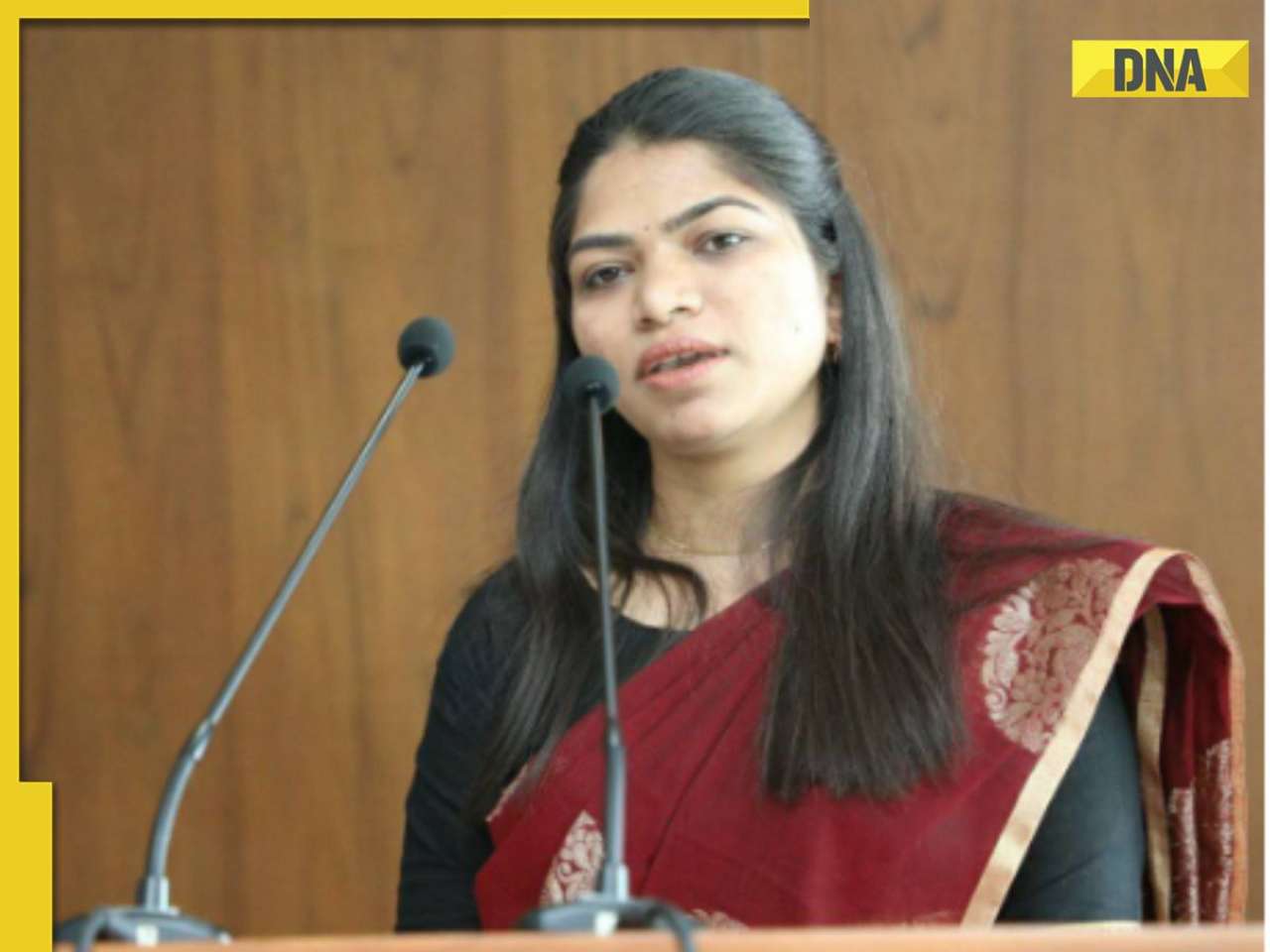

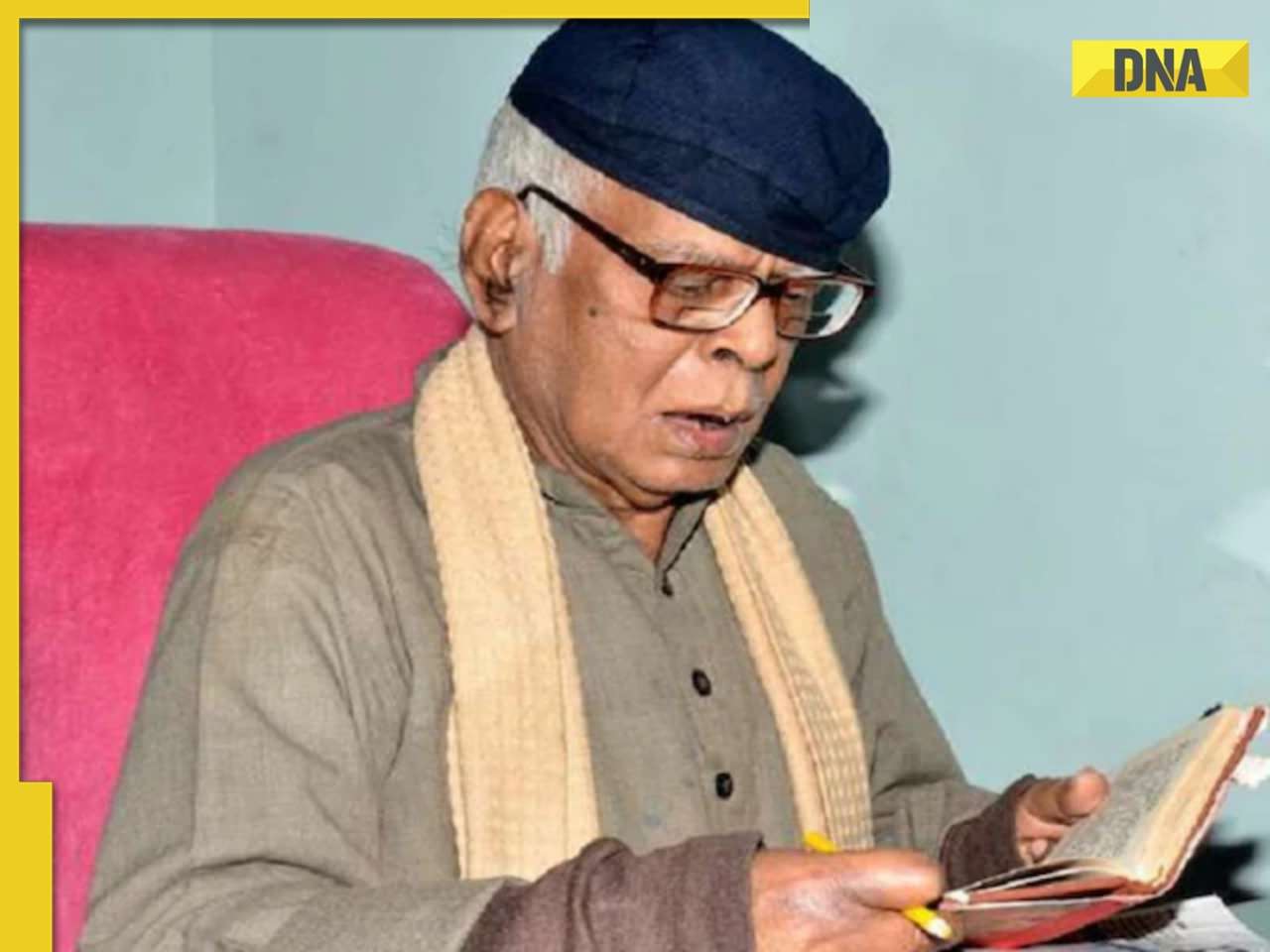


















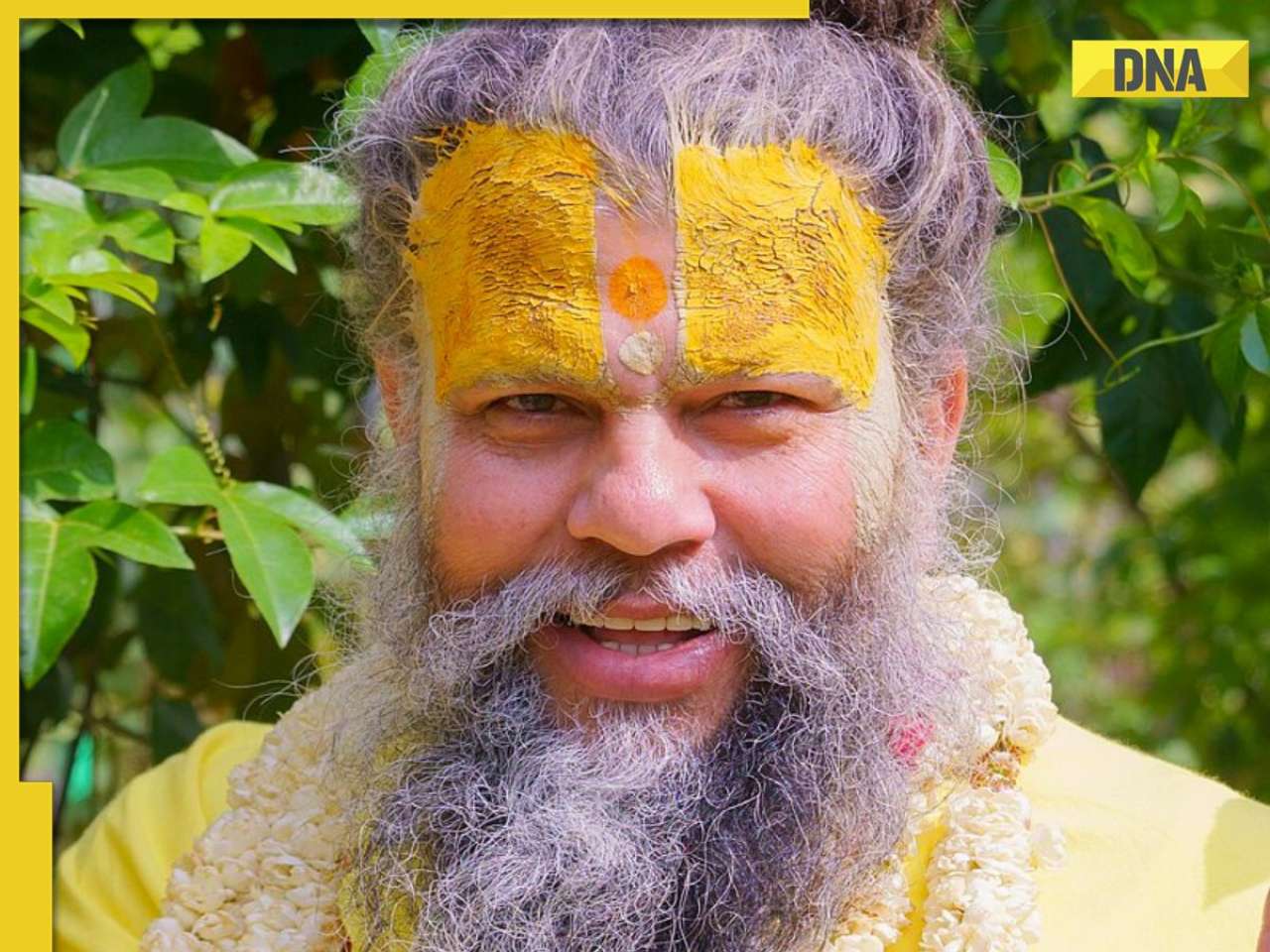
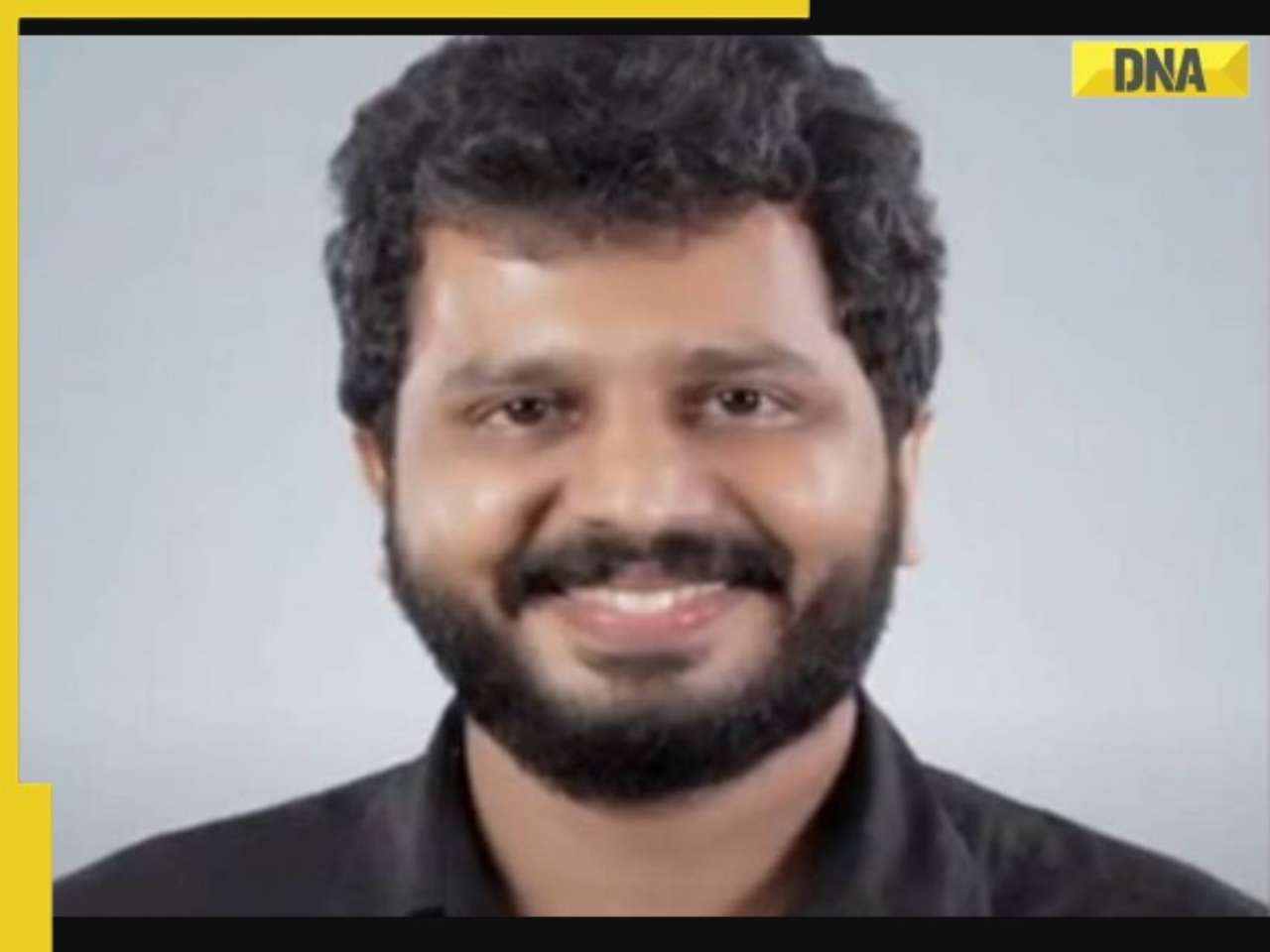


)
)
)
)
)
)
)
)
)
)
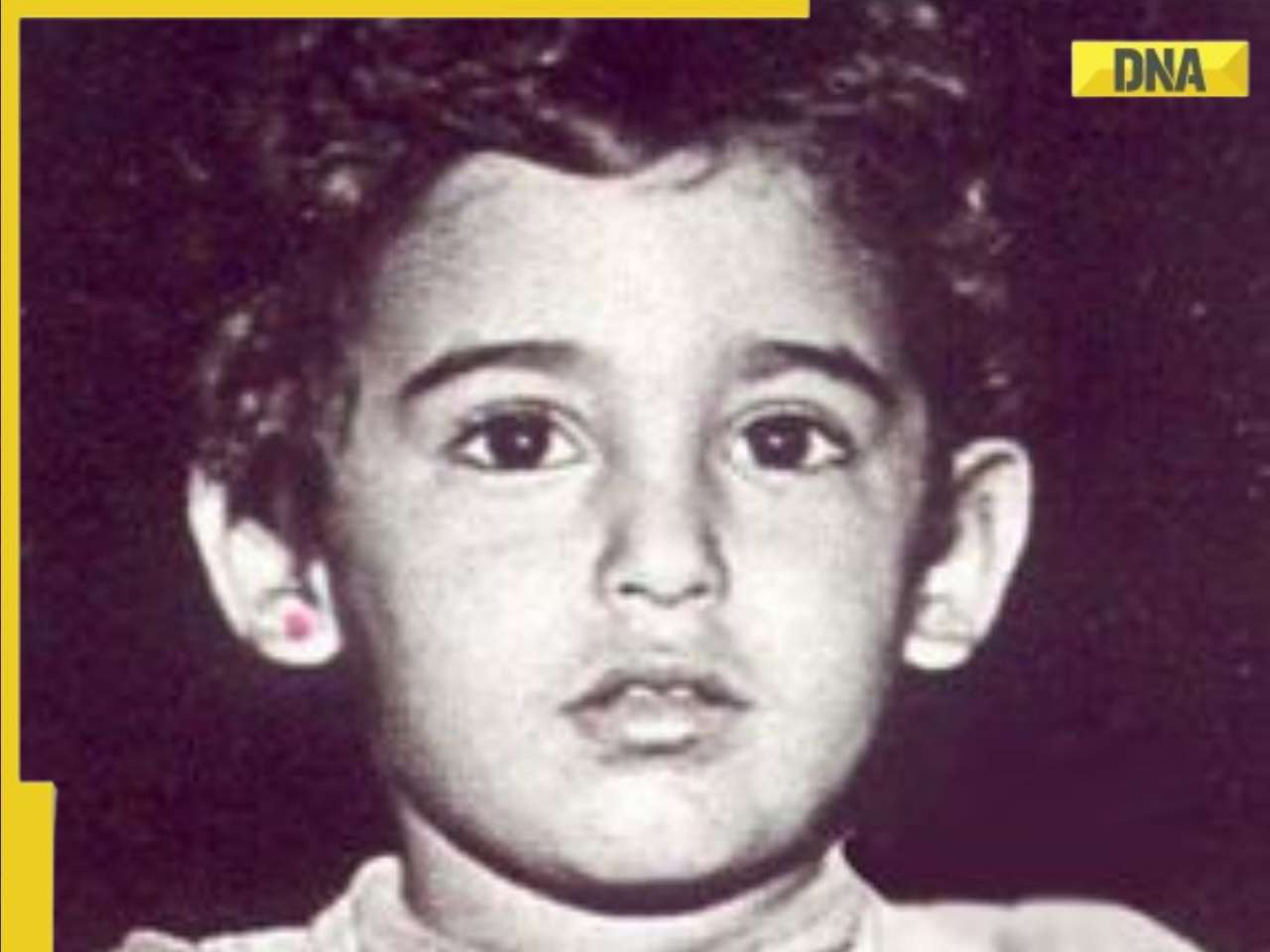)
)
)
)





)
)
)
)
)
)